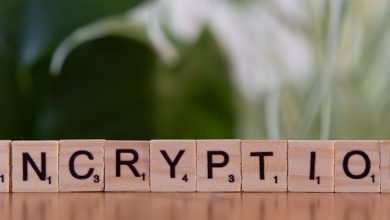How to Mitigate Risks in Peer-to-Peer Crypto Transactions

- Understanding the Risks of Peer-to-Peer Crypto Transactions
- Tips for Safely Conducting Peer-to-Peer Crypto Transactions
- Common Pitfalls to Avoid in P2P Crypto Transactions
- Security Measures to Protect Yourself in Crypto Transactions
- How to Verify the Legitimacy of Peer-to-Peer Crypto Transactions
- Ensuring a Smooth and Secure Peer-to-Peer Crypto Transaction Process
Understanding the Risks of Peer-to-Peer Crypto Transactions
When engaging in peer-to-peer crypto transactions, it is crucial to understand the associated risks to protect your investments and personal information. One common risk is the potential for fraudulent activities, as there is no intermediary to verify the legitimacy of the transaction. This lack of oversight can leave you vulnerable to scams and hacks.
Another risk to consider is the possibility of encountering untrustworthy individuals who may not have your best interests in mind. It is essential to exercise caution when dealing with strangers online and to thoroughly research the reputation of the person you are transacting with.
Furthermore, there is a risk of price volatility in the crypto market, which can lead to unexpected losses if the value of the cryptocurrency being exchanged fluctuates significantly during the transaction process. It is important to monitor market trends and set limits to protect yourself from potential financial harm.
To mitigate these risks, it is recommended to use reputable peer-to-peer platforms that offer escrow services to secure the transaction until both parties fulfill their obligations. Additionally, conducting transactions in public places or using secure payment methods can help minimize the risk of fraud or theft.
By being aware of the risks involved in peer-to-peer crypto transactions and taking proactive measures to protect yourself, you can safely participate in this growing market while minimizing the potential for adverse outcomes.
Tips for Safely Conducting Peer-to-Peer Crypto Transactions
When engaging in peer-to-peer crypto transactions, it is crucial to follow some key tips to ensure a safe and secure experience. Here are some important guidelines to consider:
- 1. Research the reputation of the person you are transacting with. Look for reviews or feedback from other users to gauge their trustworthiness.
- 2. Use a reputable escrow service to hold funds until both parties have fulfilled their end of the transaction. This adds an extra layer of security.
- 3. Double-check the wallet addresses before sending any funds to avoid any potential errors or scams.
- 4. Avoid sharing sensitive information such as personal details or private keys during the transaction process.
- 5. Consider meeting in person for high-value transactions to ensure a face-to-face interaction and added security.
By following these tips, you can minimize the risks associated with peer-to-peer crypto transactions and conduct your exchanges with confidence.
Common Pitfalls to Avoid in P2P Crypto Transactions
When engaging in peer-to-peer crypto transactions, it is crucial to be aware of common pitfalls that could jeopardize the security and success of your trades. By recognizing and avoiding these risks, you can mitigate potential losses and protect your assets.
One common pitfall to watch out for is the lack of due diligence when selecting a trading partner. It is essential to thoroughly research the individual or platform you are transacting with to ensure they have a reliable reputation and a history of successful trades. Failing to do so could result in falling victim to scams or fraudulent schemes.
Another pitfall to avoid is neglecting to use secure and reputable escrow services. Escrow services act as intermediaries that hold funds until both parties fulfill their obligations in the transaction. By utilizing escrow services, you can reduce the risk of being defrauded and increase the likelihood of a successful trade.
Additionally, one must exercise caution when sharing personal information or wallet addresses during peer-to-peer transactions. Avoid disclosing sensitive details that could compromise your security or privacy. Be wary of phishing attempts or malicious actors seeking to exploit vulnerabilities in the transaction process.
Lastly, it is important to be mindful of the volatility of the crypto market and to set realistic expectations for your trades. Avoid making impulsive decisions based on short-term price fluctuations and instead focus on long-term investment strategies. By staying informed and vigilant, you can navigate the challenges of peer-to-peer crypto transactions with confidence and minimize potential risks.
Security Measures to Protect Yourself in Crypto Transactions
To protect yourself in crypto transactions, it is crucial to implement robust security measures. Here are some key steps to safeguard your assets:
- Utilize a secure and reputable wallet to store your cryptocurrencies. Look for wallets that offer features like two-factor authentication and multi-signature functionality.
- Enable security settings such as password protection, encryption, and biometric authentication on your wallet and exchange accounts.
- Regularly update your software and firmware to patch any vulnerabilities that could be exploited by hackers.
- Avoid accessing your accounts on public Wi-Fi networks or shared devices to prevent unauthorized access to your funds.
- Be cautious of phishing attempts and never share your private keys or seed phrases with anyone.
- Consider using a hardware wallet for an extra layer of security when storing large amounts of cryptocurrency.
By following these security measures, you can significantly reduce the risks associated with peer-to-peer crypto transactions and protect your investments from potential threats.
How to Verify the Legitimacy of Peer-to-Peer Crypto Transactions
One of the crucial steps in mitigating risks in peer-to-peer crypto transactions is verifying the legitimacy of the transaction. This process involves ensuring that the transaction is secure and trustworthy. Here are some steps you can take to verify the legitimacy of peer-to-peer crypto transactions:
-
Check the reputation of the counterparty: Before engaging in a crypto transaction, research the reputation of the person or entity you are transacting with. Look for reviews, ratings, and feedback from other users to gauge their trustworthiness.
-
Verify the transaction details: Double-check all the transaction details, including the amount, wallet addresses, and any additional terms agreed upon. Ensure that everything aligns with what was discussed before proceeding.
-
Use escrow services: Consider using escrow services to secure the transaction. Escrow services hold the funds until both parties fulfill their obligations, providing an added layer of security.
-
Utilize a reputable platform: Conduct crypto transactions through reputable platforms that offer security features and protect user privacy. Avoid using unknown or unverified platforms that may pose risks.
-
Stay informed about scams: Keep yourself updated on common crypto scams and fraudulent activities. Be cautious of any red flags, such as requests for advance payments or personal information.
By following these steps and being diligent in verifying the legitimacy of peer-to-peer crypto transactions, you can reduce the risks associated with such transactions and protect your assets.
Ensuring a Smooth and Secure Peer-to-Peer Crypto Transaction Process
When engaging in peer-to-peer crypto transactions, it is crucial to implement measures that ensure a smooth and secure process. One way to achieve this is by using an escrow service. By utilizing an escrow service, the funds involved in the transaction are held by a neutral third party until the terms of the transaction are met. This adds an extra layer of security and helps prevent fraudulent activities.
Furthermore, it is important to verify the identity of the counterparty before proceeding with the transaction. This can be done by conducting background checks, verifying their online presence, and ensuring they have a good reputation within the crypto community. By taking these steps, you can mitigate the risk of transacting with malicious actors.
Additionally, it is recommended to use a secure communication channel when negotiating the terms of the transaction. Avoid sharing sensitive information such as wallet addresses or private keys over unsecured channels. Utilize encrypted messaging platforms or secure email services to protect your data from potential threats.
Lastly, always double-check the transaction details before finalizing the deal. Ensure that you are sending the correct amount of cryptocurrency to the right wallet address. Once the transaction is completed, monitor the blockchain for confirmations to verify that the funds have been successfully transferred. By following these best practices, you can minimize the risks associated with peer-to-peer crypto transactions and ensure a smooth and secure process.



